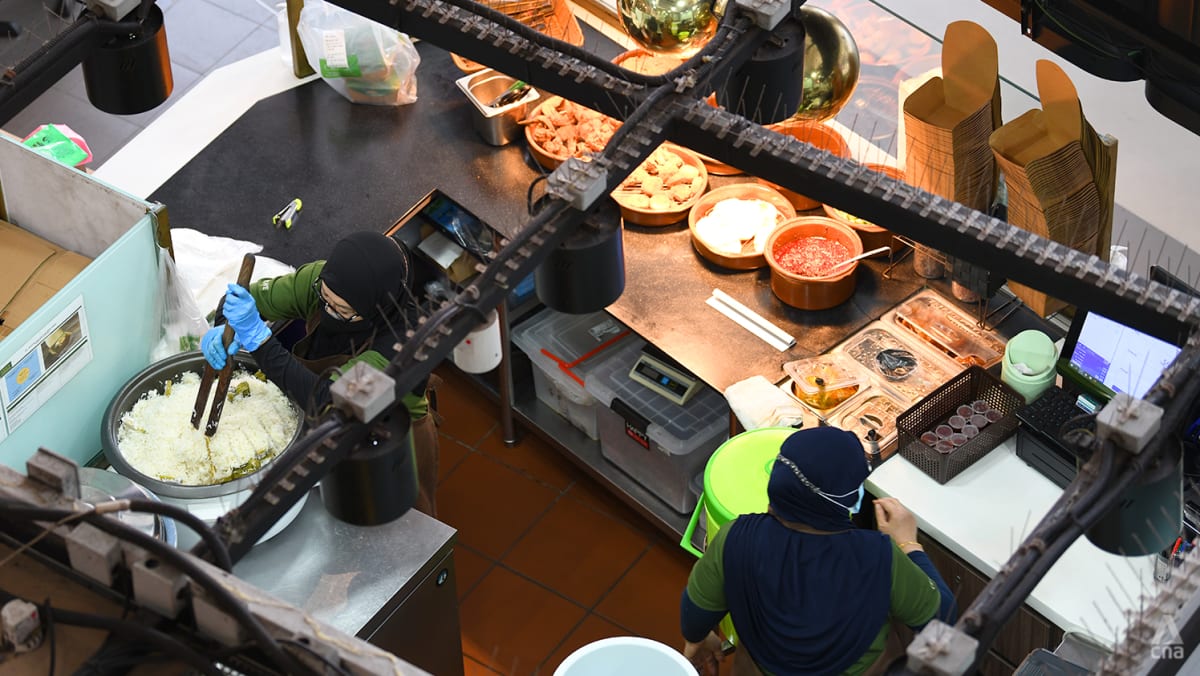S Pass qualifying salaries to be raised, but workers in some jobs can switch to work permits
Tier 1 levies, which apply to up to 10 per cent of a company’s workforce, will also go up from S$330 to S$450 from September this year. It is expected to increase to S$650 by Sep 1, 2025.
“In addition to quotas, qualifying salaries and levies are in place to ensure that S Pass holders are hired because they fill skills gaps, and not simply because they are cheaper than locals,” said MOM.
JOBS EXCLUDED
But firms will be allowed to hire workers for some jobs on work permits once the higher salary benchmarks kick in on Sep 1 next year. This is as some firms hire rank-and-file workers on S Passes due to the source restrictions for work permit holders.
“We will introduce a Non-Traditional Source (NTS) occupation list, which is a tight list of rank-and-file occupations where employers will be allowed to hire NTS foreign workers on work permits,” Dr Tan said.
These include cooks in Indian restaurants, food processing workers, sheet metal workers, welders and flame cutters, riggers and cable splicers, and other such workers in manufacturing and engineering firms.
“I know many enjoy … the multicultural cuisines in Singapore. I hope that this will reinforce our position as a food paradise supporting the cultural heritage of Singapore,” said the minister.
These workers will need to be higher-skilled and be subject to a quota. They can also only perform the occupation stated on their work permit.
MOM will also introduce a Manpower for Strategic Economic Priorities (M-SEP) scheme, which provides foreign manpower flexibilities for a period of time to firms that contribute to Singapore’s strategic economic priorities and local workforce development.
To be eligible for the scheme, firms will have to meet criteria such as taking part in selected programmes for research and internationalisation. They will also have to commit to developing their local workforce.
The scheme will be available for three years and more details will be provided later.
CONCERNS ABOUT RAISING S PASS SALARIES
Dr Tan said there have been questions about whether increasing the S Pass qualifying salary means that foreign S Pass holders will automatically get a pay raise, perhaps at the expense of their local colleagues.
But if the S Pass salary is not raised, then local workers’ salaries will also stagnate, said Dr Tan.
“The firm can continue to renew the S Pass holder on the lowest salary required, so long as he is willing to accept it. And the firm will then have little reason to raise the pay for the other nine locals who are doing the same job.”
He has also come across suggestions to load all the increase on levies. This will make the levy much higher, and apply equally to all S Pass holders.
“More productive firms that hire high-quality S Pass holders well above the qualifying salary, will face the same cost increase as less productive firms who are paying just the bare minimum,” said Dr Tan.
He added that the higher qualifying salary will only apply to work pass renewals from September 2023, and this could stretch out to 2026, depending on when the S Pass holder is due for renewal.
“The firm will have ample time to think about alternative options, for instance, finding or training up another local. This is especially so if the foreigner is not bringing enough value to justify the pay increase,” said Dr Tan.
He also pointed out that there are quotas at the S Pass level, but if employers still unfairly raise foreigners’ pay, without fairly reviewing the pay of locals, then workers can take their grievances to the Tripartite Alliance for Fair & Progressive Employment Practices (TAFEP).
To businesses that have said that it is hard to find locals in a tight labour market, Dr Tan urged them to redesign their jobs to make them more flexible and inclusive to attract local workers.
He pointed out that there is a “significant untapped supply” of manpower from women and seniors outside the labour force.
“With the S Pass moves, businesses that are reliant on low-cost S Pass holders will have to adapt. They will have to redesign their operations to become more productive. They will have to improve the pay and working conditions for these jobs. And because of this, they will be in a stronger position to attract locals,” he said.
For all the latest business News Click Here

